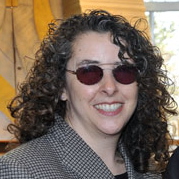 It has been five years since I took on the role of Executive Director of the Medieval Academy of America (including one year as Acting ED). In those five years, thanks to your generosity, we have increased our support of members to record levels. In 2017, we awarded a total of nearly $100,000 to forty student, contingent, junior, and independent scholars. We facilitated the dissertation research of sixteen advanced graduate students, sent ten students to summer language and paleography programs around the world, supported fourteen independent and contingent scholars with research or conference-travel funding, subvented the publication of several first books, and helped fund student conferences and symposia.
It has been five years since I took on the role of Executive Director of the Medieval Academy of America (including one year as Acting ED). In those five years, thanks to your generosity, we have increased our support of members to record levels. In 2017, we awarded a total of nearly $100,000 to forty student, contingent, junior, and independent scholars. We facilitated the dissertation research of sixteen advanced graduate students, sent ten students to summer language and paleography programs around the world, supported fourteen independent and contingent scholars with research or conference-travel funding, subvented the publication of several first books, and helped fund student conferences and symposia.
We continue to push the chronological, geographic, and topical boundaries of Medieval Studies. We promote a broad, global definition of the field in the pages of Speculum, in the work we support with research and travel grants, in the publications we honor, and in the papers presented at our Annual Meeting. It has become clear, however, that our mandate must also include advocating for you – a member of the Medieval Academy of America – in more personal ways. The painful events of the past year, in particular, have made it clear that we must support you not only as a scholar but as a human being trying to make a living as a medievalist. This part of our work is guided in principal by our Values Statement and in practice by these four directives:
Pull down the walls that keep us from engaging in the world outside Academia;
Open the Gates and welcome all medievalists;
Build a longer table and invite everyone to have a seat;
Raise a bigger tent to protect those whose lives, bodies, and research carry professional, economic, intellectual, or personal risk.
Inspired by recommendations made by the Fellowship of Medievalists of Color and in an effort spearheaded by Nahir Otaño Gracia (Beloit College), the Council of the Medieval Academy recently approved several initiatives designed to make the Academy a more welcoming place for all medievalists: the establishment of an Inclusivity and Diversity Committee to chart our course, and the approval of two awards to be adjudicated by the newly-established Inclusivity and Diversity Prize Committee. The two new awards will be granted annually beginning in 2019: the Inclusivity and Diversity Travel Grant, to be presented annually to a medievalist presenting a paper at our Annual Meeting; and the Belle Da Costa Greene Award, to be granted annually to a member of the Medieval Academy of America to support research and travel. Please consider donating to the Belle Da Costa Greene Fund in support of the Award to be given in her name.
We are extremely grateful to Dr. Gracia for her efforts in bringing these programs to fruition and also for her role in planning and chairing the Inclusivity and Diversity roundtable at our recent Annual Meeting in Atlanta. She has written eloquently about the session in a recent blogpost. Other sessions and papers at the Annual Meeting addressed some of the issues and ideas raised in the roundtable, and we will continue to engage with these topics at future Annual Meetings.
These initiatives add to programming already underway. We took part in several wide-reaching public advocacy actions in 2017, such as the statement we released after the horrors in Charlottesville or the actions we took when NEH funding was at risk. Such actions are undertaken by the Council in compliance with our Advocacy Policy. Under the leadership of 2nd Vice-President Ruth Mazo Karras, an ad hoc committee has begun to develop policies and procedures having to do with identifying, addressing, and preventing harassment at our Annual Meeting.
I invite you to help us understand where we need to focus our efforts by participating in our survey of gender- and racial-identity demographics. To participate, sign into your account on our website, click “Manage Profile” and “Edit bio,” and check the appropriate boxes. This information is absolutely and inviolably confidential and will not be visible on your public profile. It will be accessed and used only in aggregate. We need as many of our 3,600 members as possible to contribute this data so that we can accurately assess the composition and complexity of our membership corps.
Thank you for supporting these initiatives with your continued membership, volunteer efforts, and generous contributions. I look forward to working with you as we continue our efforts to make the Medieval Academy of America a more welcoming place for all medievalists.
Working and learning together, we can build a better Medieval Studies.
Lisa Fagin Davis
Executive Director, Medieval Academy of America
LFD@TheMedievalAcademy.org



